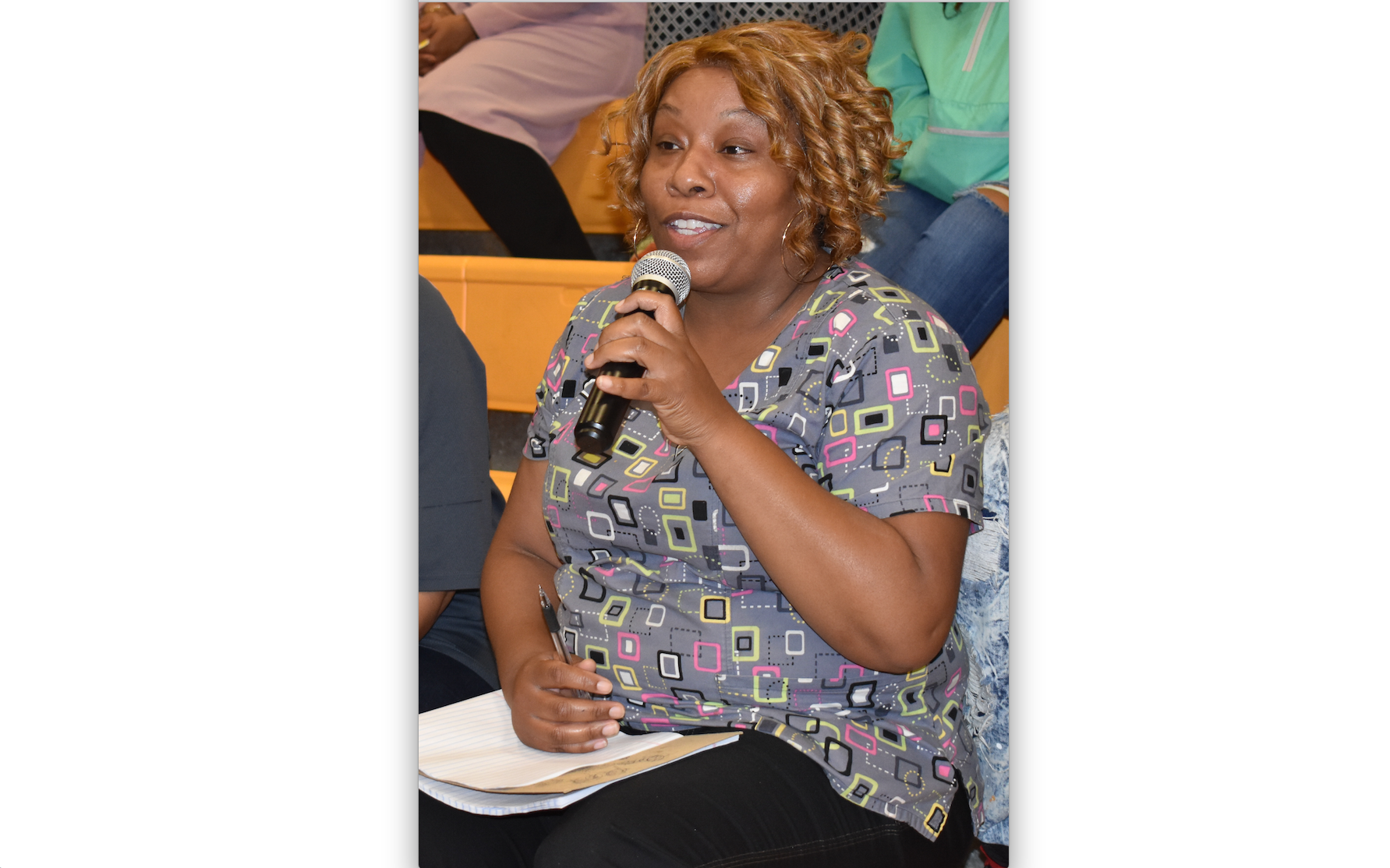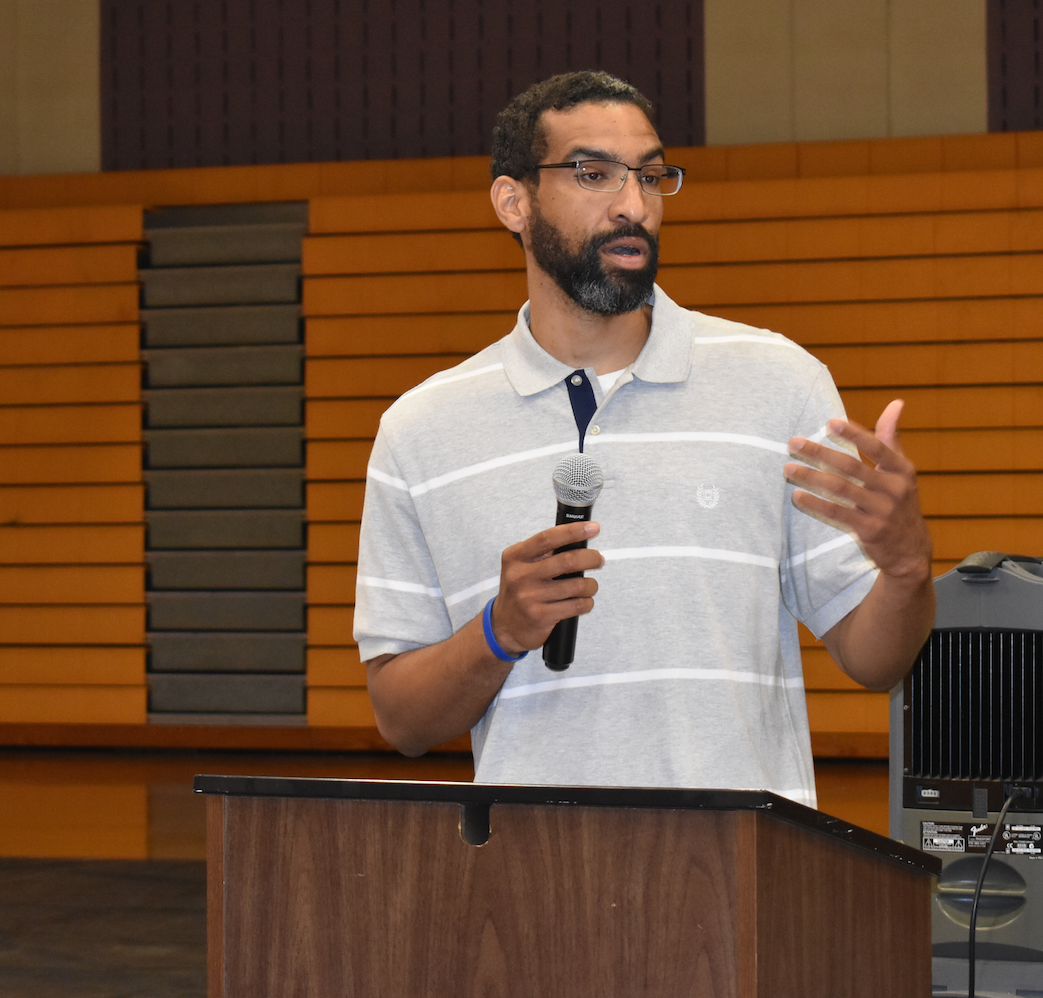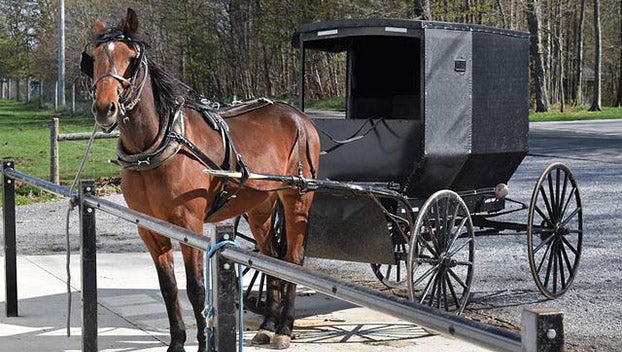College symposium held
Published 12:40 pm Tuesday, October 2, 2018
High school juniors and seniors and parents corresponded with representatives of nine colleges and universities about higher education during a panel and forum held at Prince Edward County Middle School on Sept. 26.
Representatives from nine different schools attended, which included Virginia State University, Hampden-Sydney College, University of Lynchburg, University of Virginia, Randolph College, Sweet Briar College, Longwood University, Southside Virginia Community College and the Richard Bland College of William & Mary.
The symposium was organized by the Southside Community Development Alliance (SCDA), coordinated by Jill Ahmad and Dr. Jamaal Johnston. The nonprofit focuses on resources for youth and underserved members of the region, which covers nine counties, including Prince Edward and Cumberland.
“This symposium is for you,” Johnston said, addressing the students and families in the audience. “Feel free to ask questions about anything that you’re not sure about, anything that can be explained to you by this wonderful panel.”
Prince Edward Commonwealth’s Attorney Megan Clark, a high school graduate from Prince Edward, emphasized the importance of education in the county, particularly concerning the public schools in the county being closed between 1959-1964. She addressed that many students in the county may be first generation college students, and navigating the college application process can be intimidating.
“I’m here to assure you that it’s not that bad,” Clark said.
“That is why it is imperative that you all take part in programs like today when you are able to have a one-on-one conversation with representatives of various schools, so that they can ease your minds and take some of that trepidation and some of that angst away from you,” Clark said, “so that you know what is expected of you, and so you all can put yourselves in the best position possible when it is time to apply to school, and you will be able to excel and exceed beyond anybody’s expectations.”
Cainan Townsend, director of education and public programs at the Robert Russa Moton Museum, moderated the panel.
The panel included Anita Garland, dean of admissions with private, all-male Hampden-Sydney College; Dara Logan, senior associate director of admissions with private college University of Lynchburg; Nelson Davis, dean of admissions with private Randolph College; Johnice Brown, associate director of admissions with public institution Longwood University; Dorothea Sizemore, dean of enrollment management with Southside Virginia Community College (SVCC); Allyson Umali, admissions counselor with public institution University of Virginia (UVA); Gloria Simon, senior admissions counselor with private, all-female Sweet Briar College and Kyle Dobry, admissions counselor with residential two-year junior college Richard Bland College of William & Mary.
Questions from the audience included Charlotte County parent Crystal Whitt, who asked if colleges typically require interviews or early decisions from students and how they work and if potential colleges would rather see AP classes on college application versus credits from associate degree programs from community colleges. Parent Devonda Robinson and student Jabari Gunter asked how higher institutions of learning enforce safety measures for students and how colleges and universities evaluate positive and negative items on students’ applications.
Garland said Hampden-Sydney does not require interviews but that staff are always interested in meeting potential students. Simon said the registrar’s office at Sweet Briar reviews applicants’ transcripts and does not have a preference between AP classes and associate degree classes. Umali said UVA could accept associate degree credits, but students dually enrolled in high school and community college would need to apply to UVA as a first-year student rather than as a transfer student.
Davis said the registrar’s office at a particular college or university determines a student’s placement based on students’ academic transcript, which includes the classes students take and their grades. Generally, if there is a comparable general education class between the college and the high school or the community college the student has already taken, Davis from Randolph College and Sizemore with SVCC said the college or university can potentially count the class’ credits, which would prevent the student from having to take a similar class.
Sizemore said whether the university or college accepts credits from a community college or AP class can depend on what major the student is looking to achieve. Specialized programs like nursing may require different qualifications.
Garland said safety measures, including any reports of violence, rapes or felonies that occurred on campus, are listed on colleges and universities’ websites.
“Safety is a big concern and we are hearing it more and more,” Garland said. “It’s now like in a top five concerns of going to college.”
Simon said as part of the institution’s security system, students at Sweet Briar downloaded an app that allows students to tell the school whether they need security personnel or other students to accompany them if they are walking alone on campus, such as walking alone at night. The app also gives an alert to trusted friends, family or security personnel if the student has experienced a threat of any kind.
“Schools are trying to give something that can be put in hand,” Simon said. “So that students have a sense of security, so that they can reach out immediately if they need assistance.”
Brown noted that Longwood has an active police base on campus, and that all residential buildings can only be accessed by students using ID cards. Brown also recommended that families take campus tours to view the security options and protocol that each school has.
Umali said the police department at UVA works closely with the Charlottesville Police Department. She also said the university has ambassadors, who do not wear police uniforms but can assist students who need help and also look out for potentially problematic situations.
Logan said the university empowers and trains students and faculty to also look out for fellow students, reporting to the authorities if they notice something that doesn’t seem quite right.
Simon encouraged students who may have had disciplinary issues in the past, such as low grades or another charge, to communicate with college and university representatives to see what could be done. She said for isolated incidents, these incidents do not bar students from admission and can be an example of how students can demonstrate that they have learned and grown from past mistakes. Simon said typically it’s only when academic or behavioral issues are consistent and the student does not demonstrate the capacity for change that schools may not be able to consider applicants.
Dorby said Richard Bland has a zero tolerance policy for instances of sexual assault among the students or plagiarism.
As early decision application deadlines typically fall in October and November, the panelists encouraged students to get an early start on the application process.
After the panel, students and families participated in a raffle where winners won swag bags from the colleges and got to speak one-on-one with representatives at information booths set out in the school’s main hallway.
Ahmad said the reception from the institutes that participated, and from the community, were more than the organization had hoped for.
“Parents told me they were able to walk away knowing more than when they came in,” Ahmad said.
She said one of the first events the SCDA held honored the 157 students from Prince Edward County High School who maintained honor roll for the 2017-2018 school year.
The question Ahmad and Johnston asked, “where do you go from there,” when addressing overachieving and motivated high school students, came to a natural conclusion, Ahmad said: “prepare for college.”







